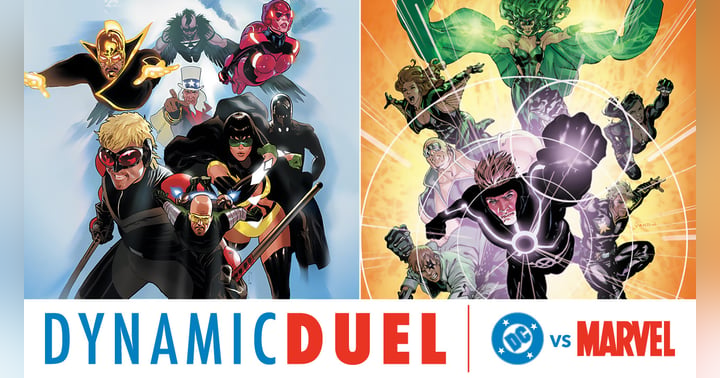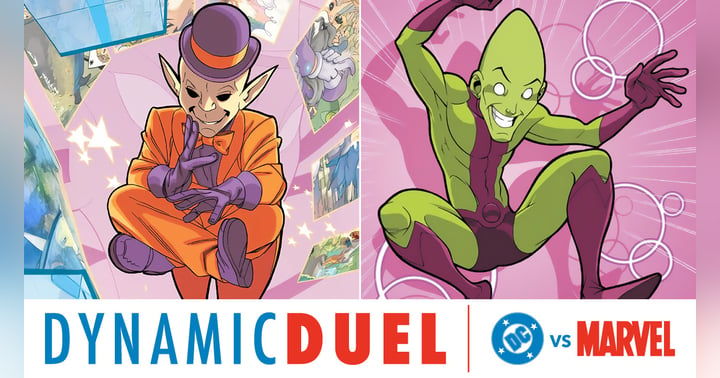DC vs Marvel: Why Marvel is Better

By Marvelous Joe
As heard on the "Marvel VS. DC W/ Dynamic Duel Podcast" episode of The Rankers Podcast.
Marvel's characters are not merely archetypes of heroism and villainy; they are complex individuals grappling with the moral ambiguities of the real world. Unlike DC's often simplistic portrayals of good versus evil, Marvel's heroes and villains inhabit a moral gray area, reflecting the complexities of human nature where no person is ever truly good or truly evil. For example, Tony Stark is a paragon of technological achievement, but he struggles with his own demons of alcoholism and hubris as Iron Man. Bruce Banner is a modern day Jekyll and Hyde. His inner turmoil manifests as a literal monster — the Hulk — which he grapples to control. Peter Parker is driven by guilt caused by the selfish inaction of his youth that lead to his uncle’s death, and he battles not just costumed villains as Spider-Man, but with the hardships of everyday life.
These stories exemplify a more nuanced approach to character development. And this commitment to realism in both morality and worldview adds depth to Marvel’s narratives, elevating them above the more straightforward, black-and-white worldview often found in DC comics. Importantly, Marvel’s greater nuance does two things: 1) It adds interest, and 2) It adds relatability. Now my debate opponent here may state that he doesn’t need his characters to be relatable to be interesting. But, to relate to something is to share a deeper connection with it, which is a much more rewarding experience than just admiring something from a distance. Being a Marvel fan is like being in on the action, whereas being a DC fan is more like being a spectator.
Marvel's superiority becomes even more evident when you examine the breadth of its character roster. Unlike DC, which tends to focus on just a handful of characters (namely the members of the Justice League), Marvel boasts a massive roster of heroes and teams with mainstream popularity. From the Avengers, which includes Captain America, Hulk, Iron Man and Black Panther; to the wide world of the X-Men, such as Wolverine, Storm, Magneto, and Deadpool; there’s the sci-fi side with the Fantastic Four and the Guardians of the Galaxy; there’s the supernatural side with Dr. Strange, Ghost Rider and Blade; there’s the street level guys like Spider-Man, Daredevil and the Punisher — I could do this all day.
While characters like Superman, Batman, and Wonder Woman are well known, the Trinity’s prominence often comes at the expense of other DC characters and teams. DC’s very narrow spotlight ultimately hinders their ability to compete with Marvel's more expansive and inclusive approach. This larger world of characters presents greater opportunity for unique genre elements like crime noir, sci-fi and fantasy, all while tackling themes such as mutant prejudice and superhero ethics. There’s just a greater diversity of ideas at Marvel, which is why it’s been venerably labeled as “The House of Ideas.” Their bigger sandbox ensures that their stories remain fresh, dynamic and engaging, as writers have the freedom to explore more within the Marvel Universe. Conversely, DC’s most renowned examples of narrative exploration are typically outside the scope of their primary universe, in their Elseworld’s stories.
Marvel's appeal extends beyond the pages of comic books, too, evidenced by their television series, video games and of course, their groundbreaking film studio. There’s no denying that Marvel Studios has been a monumental influence in cinematic storytelling, achieving something no other production company has, by seamlessly weaving narratives across multiple mediums. DC is now trying for the second time to accomplish a cohesive film universe on par with the MCU. Their previous attempt in the DCEU was met with mixed results, and while there have been prior standout films such as The Dark Knight trilogy, DC’s filmography overall pales in comparison to Marvel's box office revenue, critical acclaim and cultural impact.
Furthermore, Marvel's forays into other non-comic media have further solidified its dominance in quality and popularity. From the gritty realism of Netflix’s Daredevil to the thrill ride of Playstation’s Spider-Man, to the nostalgic resurgence of X-Men 97, Marvel's adaptations have seen success across the board, no matter the medium.
Now let me hit you with some fast facts:
- Marvel sells more comics. Since 2001, Marvel has had a larger portion of the North American comic store market share every year, with the latest Quarter 1, 2024 figures putting Marvel at 38.9%, and DC only at 21.6%.
- Marvel sells more tickets. The average Marvel Studios movie has made $357.3 million, compared to the average DCEU movie, plus Joker and The Batman, which only averaged to $205 million.
- Marvel’s film and television projects are better received. The average Rotten Tomatoes score of every project that Marvel Studios has produced, both film and television, is 81.68%, compared to the entirety of the DCEU, also throwing in Joker, The Batman and The Sandman Netflix series, which all only average to 64.8%.
In conclusion, you can’t argue with numbers. Marvel is better in every conceivable way because they know that the true character is under the mask, and that underwear is worn inside the pants.
__________















